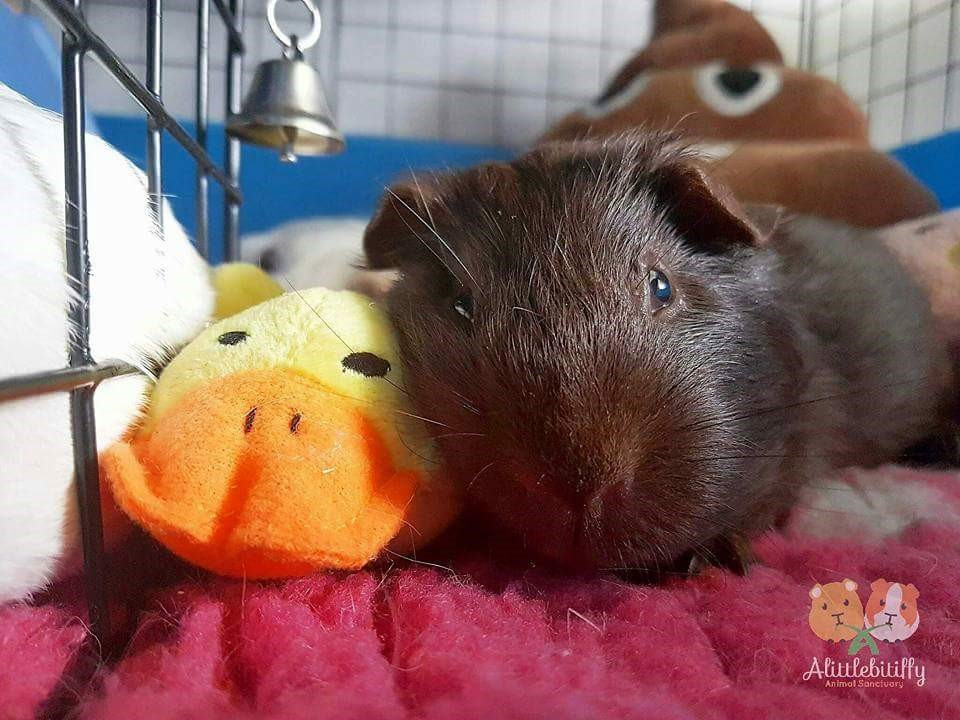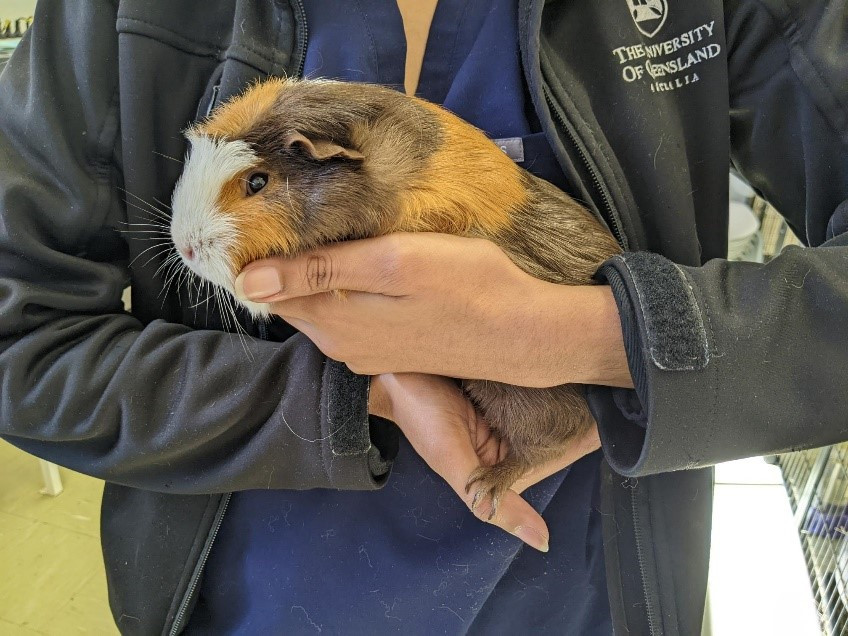How will I keep my guinea pigs safe against household hazards?

Photo credit: Iffy Glendinning
Many guinea pigs are kept indoors, with free range of the house and even parts of the yard. Like small children however, unsupervised activities can put your guinea pigs at risk. Guinea pigs are great chewers, so the most dangerous household hazards are things that they can chew on and hurt themselves, such as electrical cords and toxic plants, or soft plastics that can be a choking hazard. Other dangers are not immediate, but they can cause health problems to your guinea pigs over time.
Some common household hazards include:
Electrical wires
The biggest danger to pet guinea pigs in most homes is electrical cords. Guinea pigs like to chew on everything, especially something that looks like a root or twig. Because of this, guinea pigs are more than capable of snipping through all kinds of wires lying around the house. To protect your guinea pigs and your cords, it’s a good idea to both get the cords up and out of your guinea pigs’ reach, and also use wire covers, such as split loom wire tubing.
Houseplants
Toxic houseplants can be dangerous to guinea pigs. Many people assume that guinea pigs instinctively know not to eat poisonous plants, but this is not the case. They may nibble at a poisonous house plant simply because it’s there. See our article on feeding your guinea pig for a list of common poisonous plants.
Human foods
As a rule, human foods should be kept away from guinea pigs. This includes things like cereals, crackers, bread, other processed grains, chocolate, and sweets. Only feed foods that are safe and appropriate for guinea pigs – if you have any doubts, don’t do it.
Household chemicals
Use pet-safe cleaners and products in areas that your guinea pig has access to. Be careful with insect sprays. Be vigilant if using rat or mouse poison (avoid these if possible as they are dangerous to pets and inhumane; find out about the most humane ways to kill pest rats and mice in this article), cockroach baits, and other poisonous items and chemicals.
Pet and human medications
You may have medications that you use yourself or use on your other pets in the house. Make sure you keep your guinea pig away from these, and do not use any medication for your guinea pigs without veterinary advice. Some antibiotics (e.g., amoxycillin) are fatal if given to guinea pigs.
Plastic bags or packing material
Thin plastic bags or soft rubber plastics may be chewed and swallowed by guinea pigs. The other danger is suffocation – if a guinea pig curiously checks out the inside of a plastic bag and can’t figure out how to get out again, there is a slight risk of suffocation.
Household pets
Family pets like cats and dogs are predators and can cause harm to, or scare, your pet guinea pigs. No matter how friendly your other pets are, never underestimate what they can do in just a matter of a few seconds.
Heat
Every summer, many guinea pigs die of heat stroke. Whether they are just inside the house or outdoors, when the temperature rises to more than 30°C, it’s too hot for them to handle.
Children
Guinea pigs are soft and cuddly, and small enough to be picked up by children. Unfortunately, not all children are adept enough, or old enough, to safely hold a guinea pig (especially if they wriggle). Teach your children how to safely handle them, and always closely supervise small children.

Photo credit: Iffy Glendinning
Safe handling of a guinea pig.
Bibliography
Quesenberry K, Donnelly T (2023) Special Considerations for Guinea Pigs In: MSD Manual Veterinary Manual. Accessed 7 Aug 2023
Research Animals Department RSPCA UK (2011) Guinea pigs: Good practice for housing and care. Accessed 4 Aug 2023
RSPCA UK (2023) Making the right home for your guinea pigs. Accessed 4 Aug 2023
RSPCA UK (2023) How to take care of your guinea pigs. Accessed 7 Aug 2023
Woodgreen (2023) Poisonous food and plants for guinea pigs. Accessed 7 Aug 2023
Was this article helpful?
This work is licensed under a Creative Commons Attribution-NonCommercial-NoDerivatives 4.0 International License.


